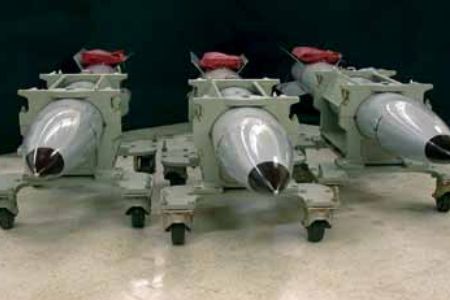
From Oliver Meier, Arms Control Now: On July 7, in a rare show of unity on nuclear issues between France and Germany, the ambassadors of both countries sent a joint proposal to NATO members on the future of the new Weapons of Mass Destruction and Disarmament Committee (WCDC). Despite this compromise, however, the Alliance’s role in nuclear arms control remains a contentious issue. . . .
Germany pushed for a quick start of work of the WCDC. The committee was formally established by NATO Defense Ministers on March 10-11, but France continued to drag its feet, citing among other things the lack of terms of reference for the new body.
The dispute was threatening to undermine agreement on the mandate of the Deterrence and Defense Posture Review (DDPR), which is expected to produce a report on the appropriate mix between conventional and nuclear elements of NATO’s deterrence posture. The WCDC will be one of three senior committees to give advice on the outcome of the DDPR, which is expected to deliver a report on NATO’s future mix of deterrence capabilities to the Alliance’s next summit in Chicago on May 20-21.
German diplomats describe the French-German paper as an interim solution to overcome the impasse between Berlin and Paris that had prevent the WCDC from beginning its work.
According to diplomatic sources, the one-page paper served as a basis for the Sept. 14 agreement in the North Atlantic Council on the DDPR “taskings” by circumscribing the WCDC’s mandate. (See ACT October 2011.)
The working paper, titled “NAC Taskings to the Weapons of Mass Destruction Control and Disarmament Committee (WCDC)” suggests that the WCDC examine “possible reciprocal measures aiming to reinforce and increase transparency, mutual trust and confidence with Russia, including the [tactical nuclear forces] paper submitted by [Germany, the Netherlands, Norway and Poland] at the Berlin Ministerial in April with a view to preparing a NATO position on the issues in question before taking them up with Russia within the [NATO-Russia Council]. . . .”
The paper leaves open the eventual fate of the WCDC beyond the May NATO summit by stating that the WCDC for the period of the DDPR “will pursue its work on the basis of specific taskings by the Council” but that once the posture review is completed and “provided nations agree on the purpose” of the WCDC terms of reference “will then be adopted by the Defense and Foreign Ministers” of NATO.
Berlin would like to turn the WCDC into a permanent arms control body and is supported by Norway. The Norwegian diplomat said that his country “would like to see the WCDC as a permanent institution with a strong mandate, to discuss a range of issue related to arms control and disarmament.”
France continues to favor a WCDC that will expire at NATO’s next summit. It points to language in the Lisbon summit declaration that the WCDC is “to provide advice on WMD control and disarmament in the context of” the DDPR. In an April 2011 Nuclear Policy Paper, Paul Zajac, first secretary at the French embassy in Berlin, thus argued that “a standing committee on disarmament would only play a marginal or even counterproductive role in NATO.” (photo: PressTV Iran)
Image: presstv%202%2017%2011%20B61%20nuclear%20warheads.jpg
